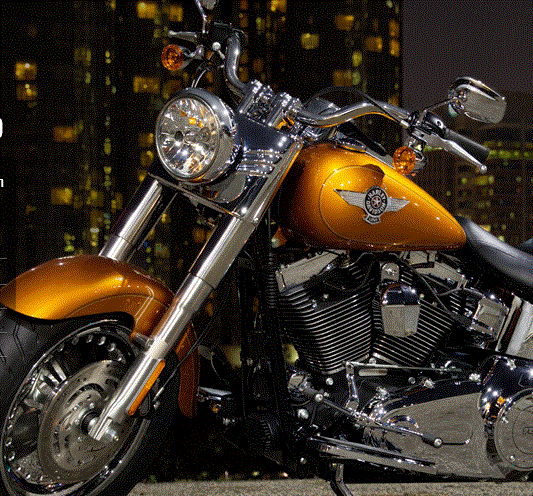Cars and Drivers
Can Harley-Davidson Truly Afford Its Dividend Hike and Buyback?
Published:
Harley-Davidson, Inc. (NYSE: HOG) is one of those truly iconic American brands. It was iconic enough that Warren Buffett even did a preferred financing deal with the company during the recession. The company has now announced a big dividend hike, and a huge stock buyback program. Despite its growth, there could be some issues that investors will take with the company’s latest efforts.
The motorcycle maker raised its quarterly dividend of $0.275 per share, up 31% from the prior dividend of $0.21. This dividend is payable March 7, 2014 to the holders of record on February 19, 2014. On top of the dividend hike, the company’s board of directors authorized the repurchase of up to 20 million shares of Harley-Davidson common stock. Where this gets interesting is that the buyback authorization is in addition to existing share repurchase authorizations – and some 8.6 million shares remained on prior board-approved share repurchase authorizations.
Brad Lamensdorf, of the Ranger Equity Bear ETF (NYSE Arca: HDGE), told us,
“Buybacks and dividends are a way to get investors excited in a stock when there’s very little reason otherwise to buy up shares. Buybacks are a low quality source of generating earnings per share. Historically, returns are much higher for dividend initiators and growers of dividends compared with buybacks.”
The Ranger Equity Bear ETF is currently short shares of Harley-Davidson, based upon inventory builds and based upon the new Indian competition that is at close to a 40% discount from its Harley-Davidson rival.
So, Harley-Davidson really has 28.6 million shares eligible to be repurchased. This came to almost $1.8 billion based upon Wednesday’s closing price. The company’s market value at the time was $13.7 billion. in short, the company wants to repurchase 13% of its common stock.
The company had cash and marketable securities of $1.17 billion at year-end 2013, plus long-term investments which offset its long-term debt. Keep in mind that the company did repurchase some 2.7 million shares in the last quarter, so the total buyback could last ten quarters or so at the current pace.
Can Harley-Davidson afford this? When you add up the money from the higher dividend with a 1.8% yield after the hike, this is close to $250 million per year for a dividend. That comes to over $2 billion in needed cash (at static market conditions that is) for this plan.
Mr. Lamensdorf also said,
“HOG has been active on the buyback front. They have plenty of cash and cash flow to put to use. The question is are they better off managing the stock price through buybacks or using their cash in alternative ways to accelerate their business?
In HOG’s case, U.S. and international retail sales were well below some Wall Street expectations. Average selling price was below expectations as were total shipments in Q4. Furthermore, guidance was essentially in-line with expectations modeled into many Wall Street estimates.”
In order to be fair on both sides here, Harley-Davidson has managed to grow sales and earnings annually. Another boost is that earnings growth and sales growth are expected to be seen in 2014 and 2015 as well.
Thomson Reuters has earnings estimates of $3.88 per share in 2014, up from $3.28 in 2013, and sees $4.49 per share in 2015. Revenue growth is expected to be 10% in 2014 to $5.78 billion, followed by revenue growth 8.2% to $6.26 billion in 2015.
Shares of Harley-Davidson were up 3.1% at $64.13 on the news, against a 52-week range of $49.15 to $70.04. Maybe this is just the business cycle that Harley-Davidson is in. Maybe acquiring new lines or branching out into new products is simply off-base from the core of the company. After all, it would be hard to imagine Harley-Davidson SUVs, boats, or small airplanes.
The last few years made people forget how much banks and CD’s can pay. Meanwhile, interest rates have spiked and many can afford to pay you much more, but most are keeping yields low and hoping you won’t notice.
But there is good news. To win qualified customers, some accounts are paying almost 10x the national average! That’s an incredible way to keep your money safe and earn more at the same time. Our top pick for high yield savings accounts includes other benefits as well. You can earn up to 3.80% with a Checking & Savings Account today Sign up and get up to $300 with direct deposit. No account fees. FDIC Insured.
Click here to see how much more you could be earning on your savings today. It takes just a few minutes to open an account to make your money work for you.
Thank you for reading! Have some feedback for us?
Contact the 24/7 Wall St. editorial team.